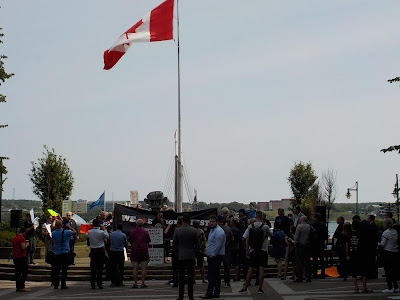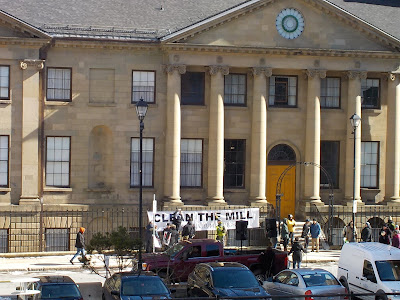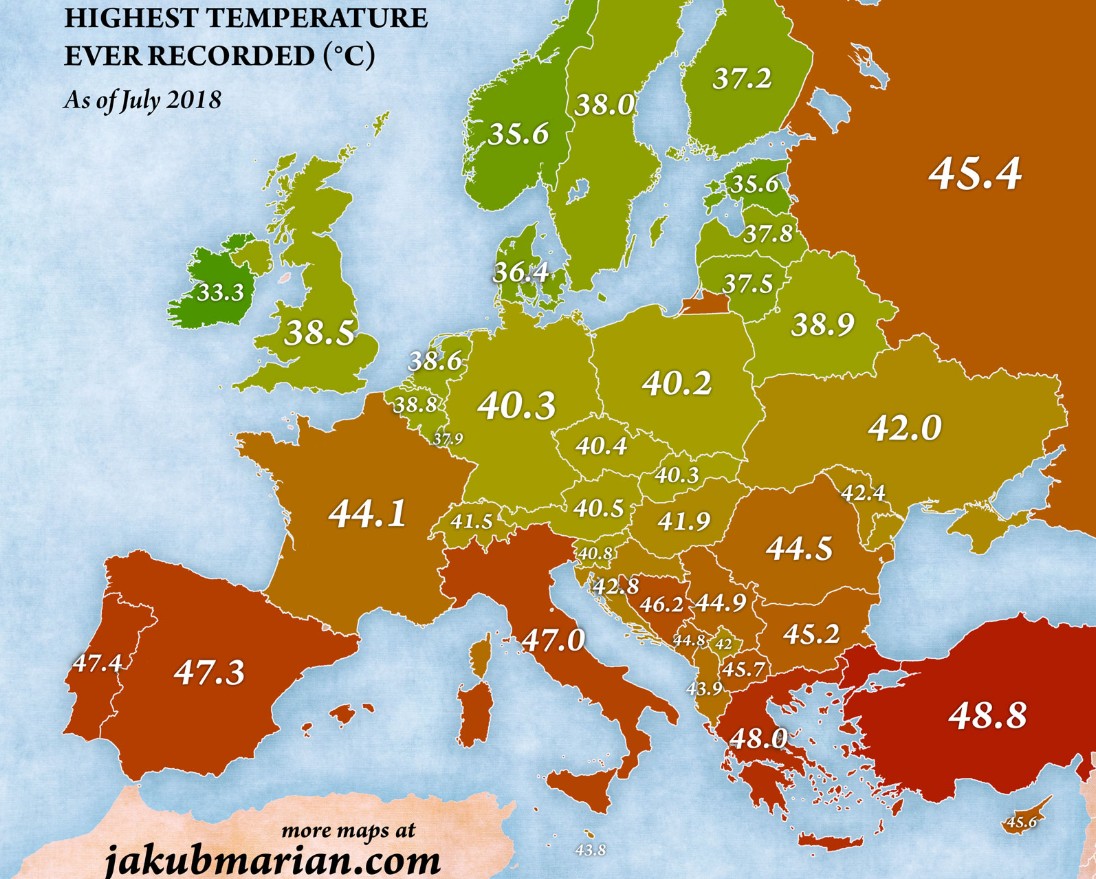 |
| Pipeline proponents |
The depth to which politics has become pursuit of election or reelection, regardless of the truth or practicality of the promises, has pushed ethical considerations and fair treatment to the background.
The real agenda of many promises is solely to attract votes.
Attacks that attempt to demonize individuals struggling to reform abusive practices is not about support for the abused, but it is an attempt to replace a status quo critical reform agenda with a more conservative leadership supportive of existing socio-economic systems. Elizabeth Dias and Laurie Goodstein, writing in the New York Times, about “Letter Accusing Pope Leaves U.S. Catholics in Conflict” share an observation about the history of the tension between Archbishop Viganò and Pope Francis.
The battle lines were being drawn even before Archbishop Viganò issued his stunning 11-page letter calling for the pope’s resignation over allegations that he covered up an abusive cleric, former Cardinal Theodore E. McCarrick.The declaration that all investment in the country is in jeopardy because of a court decision regarding the failure of government to faithfully undertake their constitutional responsibility to protect the environment and consult meaningfully with First Nations in a very specific case is hyperbole. Jesse Snyder writes, in the Financial Post, that the tide of investment is set to recede from oilpatch amid more pipeline delays. Unfortunately the quote in the article and other media seems to extend investment decline to other sectors.
Two weeks ago, Archbishop Viganò privately shared his plan to speak out with an influential American friend: Timothy Busch, a wealthy, conservative Catholic lawyer on the board of governors of the media network in which Archbishop Viganò ultimately revealed his letter.
Christopher Ragan, an economics professor at McGill University and chair of Canada’s Ecofiscal Commission, said investors are “one notch less likely to commit capital toward large-scale investment in Canada” following the decision.Investment in Canada in many sectors does not have the potential of drastic environmental consequence nor would it require consideration of the Constitutional obligations to First Nations. If the investment may have drastic environmental consequence or involves the territorial or treaty rights of First Nations, then the investor can expect that it will be in the national interest of Canada to truthfully and sincerely address these issues.
Reform of the political system includes support of politicians, like the late Senator John McCain, who speak truth to power and operate from an ethical base that is open to discussion and compromise. The electorate will need to demand that the political parties risk running candidates who use their intelligence, their ethical compass, their desire for seeking common ground, and common good to represent their constituents. The party leader will probably have to abandon the practice of “approving” candidates who have been chosen by constituent processes and “party whips” need to stop trying to force voting as “yes” people in party group think. The conservative who needs to change the liberal agenda, or vice versa, needs to approach the issues seeking common ground with a true appreciation that the “opponent” is also motivated to do the best for the people, too.
The sloganeering about “projects in the National interest”, or “this will be the death of collective bargaining” are news bytes that are usually half-truths that have the effect of dividing the camps into “us: and “them”, ensuring conflict and delaying real action for the common good. So much conflict and so little resolution appear to be haunting our democratic society. The collapse of half-truth political promises, political groupthink, and disruptive strategies that disguise real agenda create an opportunity for reformation and real progress.
References
(2018, August 30). Federal Court of Appeal quashes construction approvals for Trans .... Retrieved August 30, 2018, from https://www.cbc.ca/news/politics/tasker-trans-mountain-federal-court-appeals-1.4804495
(2018, August 27). Letter Accusing Pope Leaves U.S. Catholics in Conflict - The New .... Retrieved August 31, 2018, from https://www.nytimes.com/2018/08/27/us/catholic-church-pope-francis-letter.html
(2018, August 30). Tide of investment set to recede from oilpatch amid more pipeline delays. Retrieved August 31, 2018, from https://business.financialpost.com/commodities/tide-of-investment-set-to-recede-from-oilpatch-amid-more-pipeline-delays










